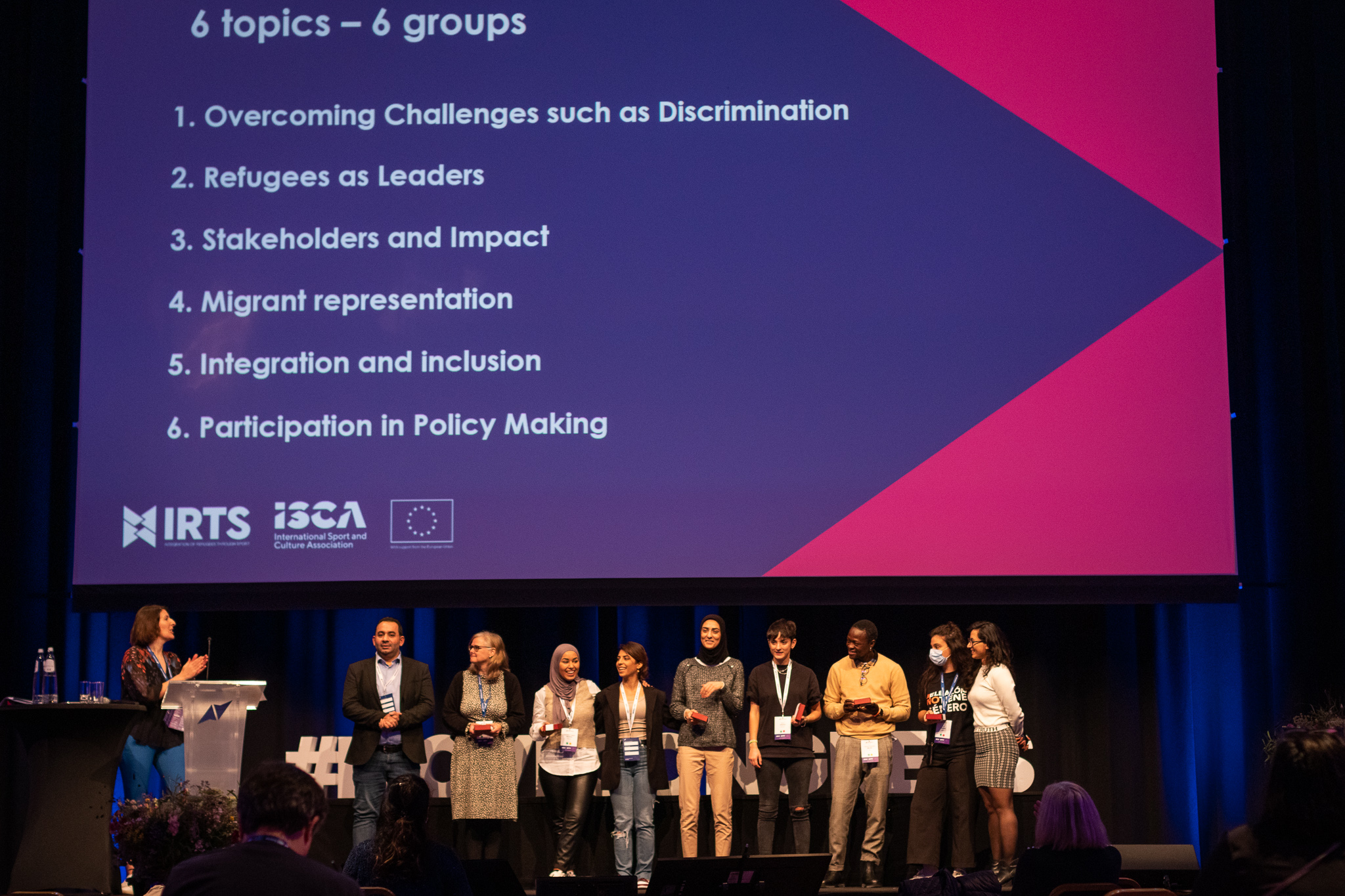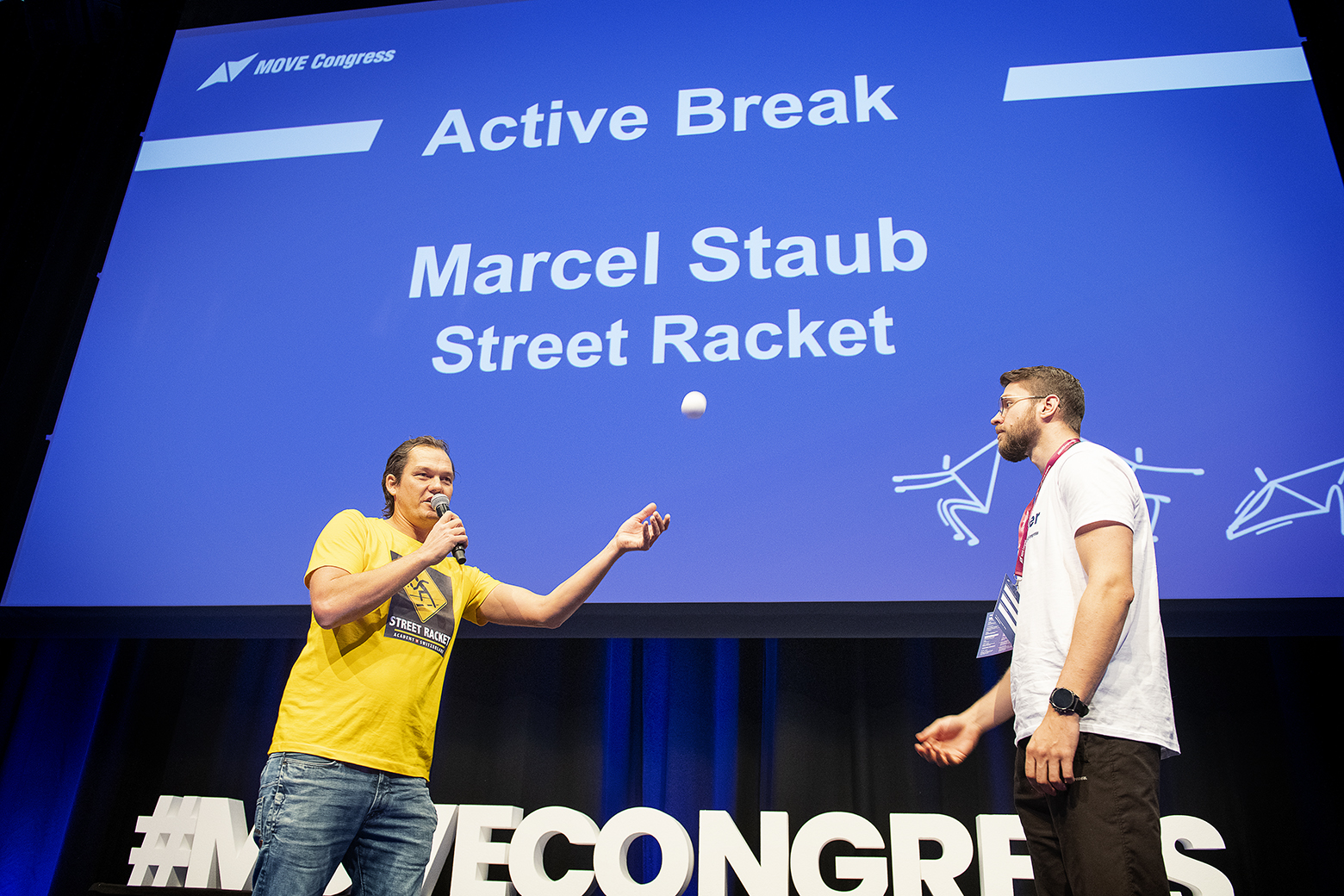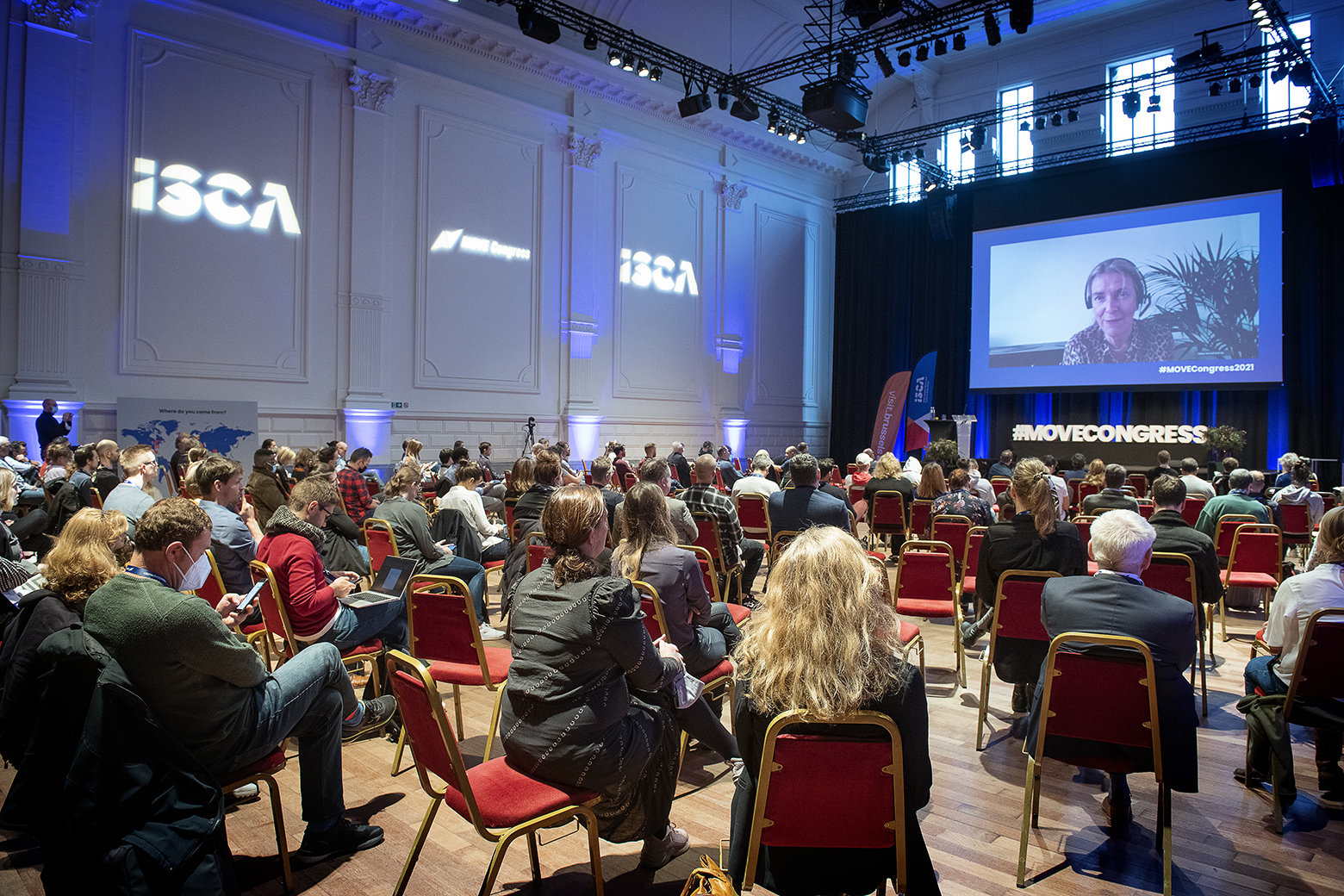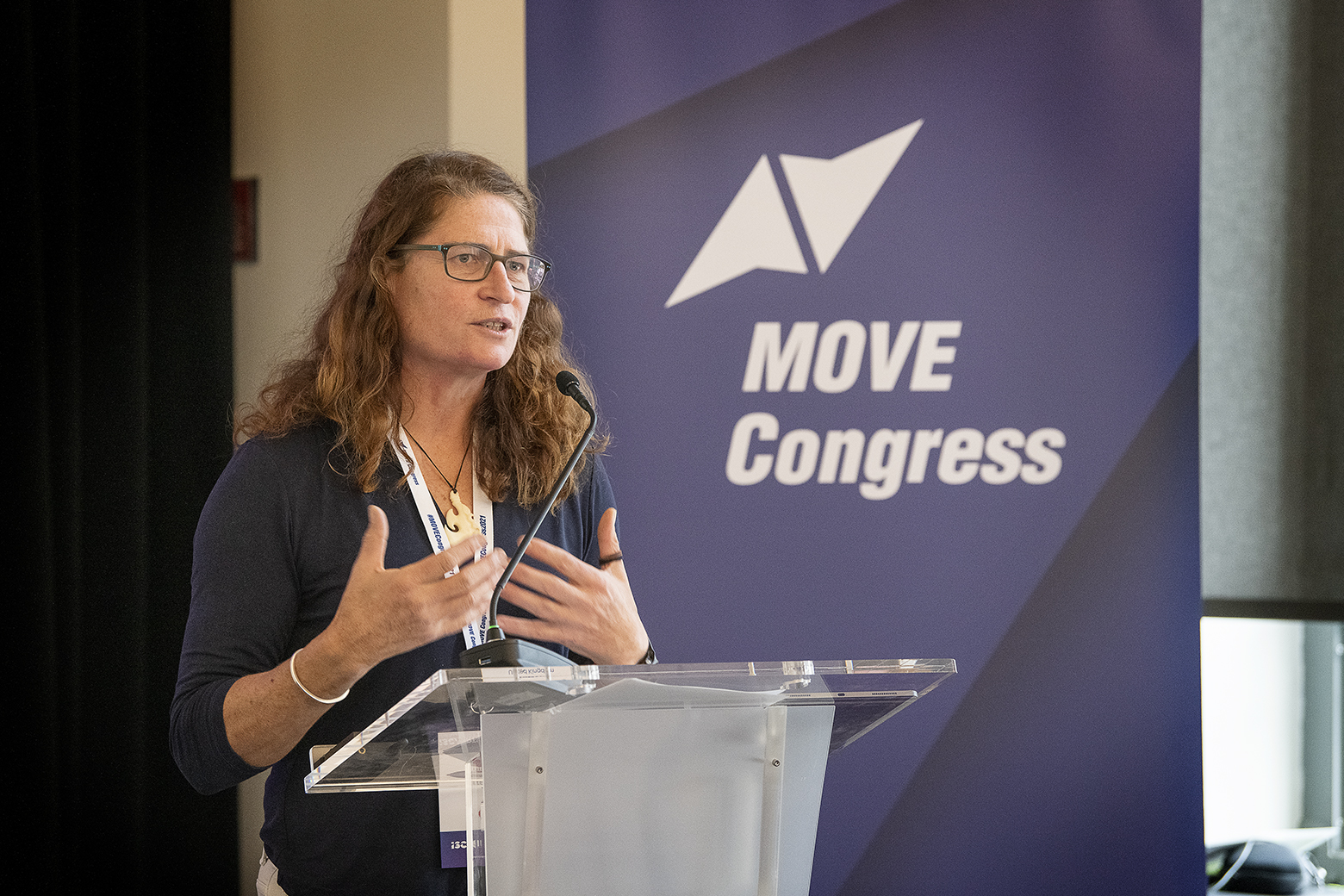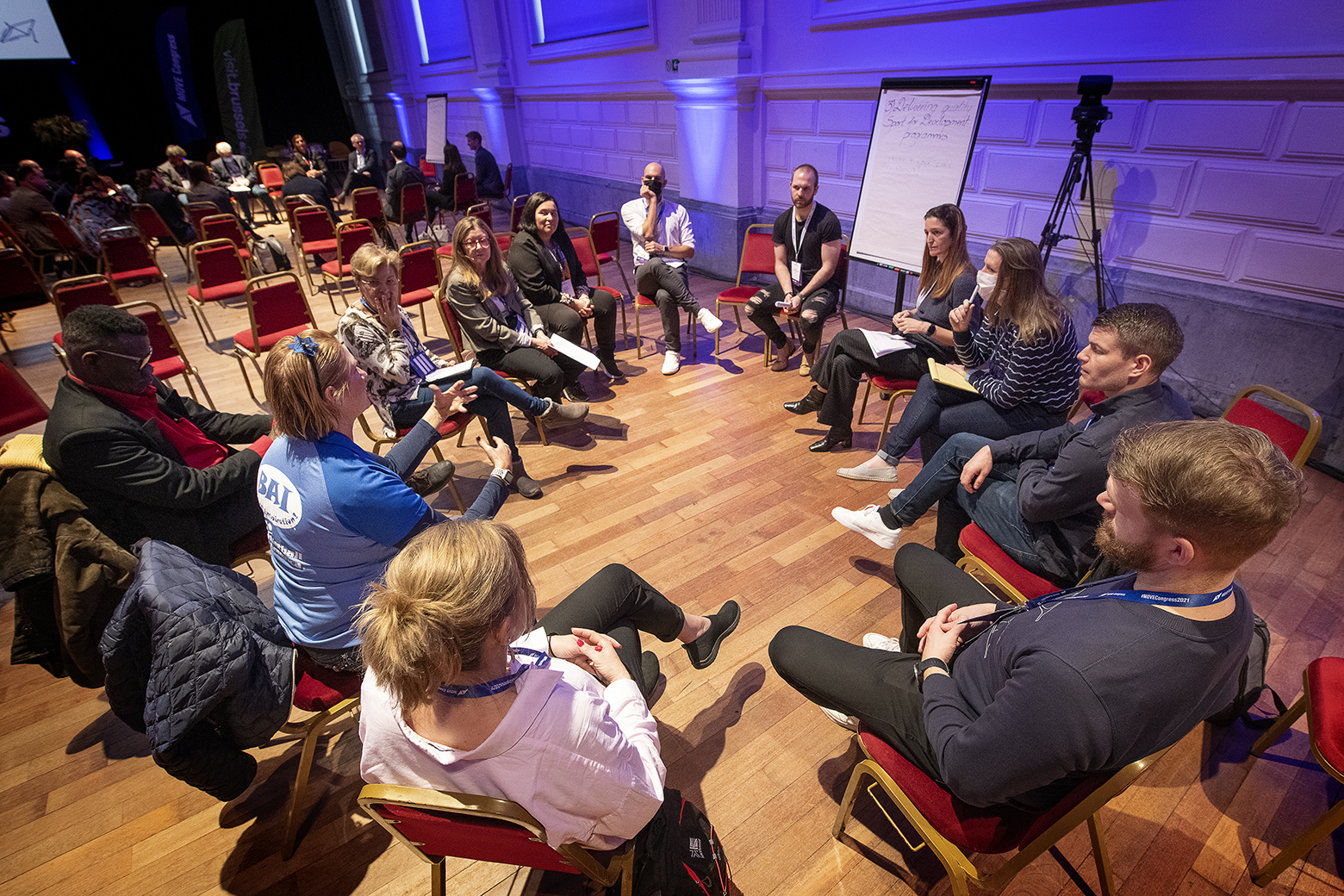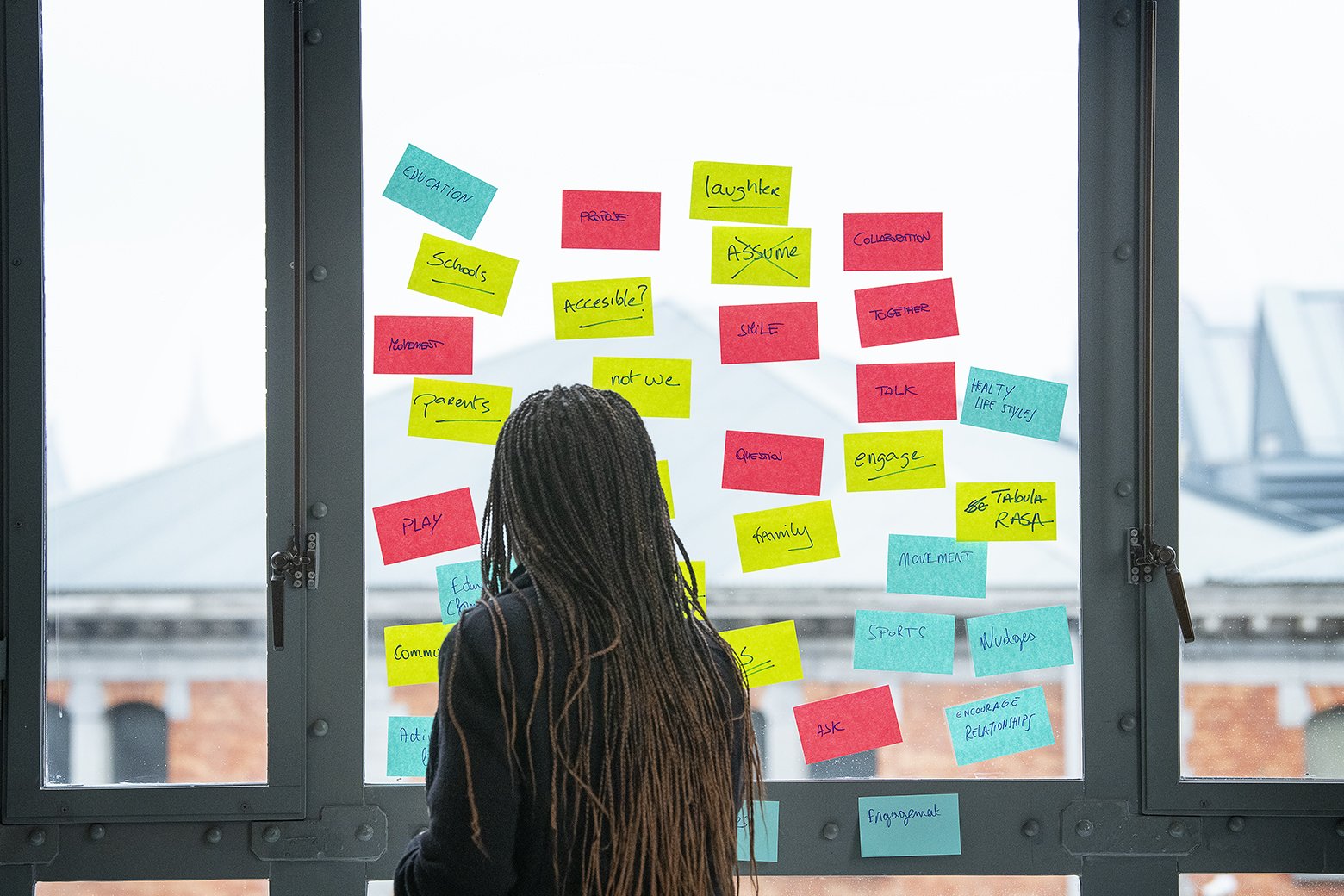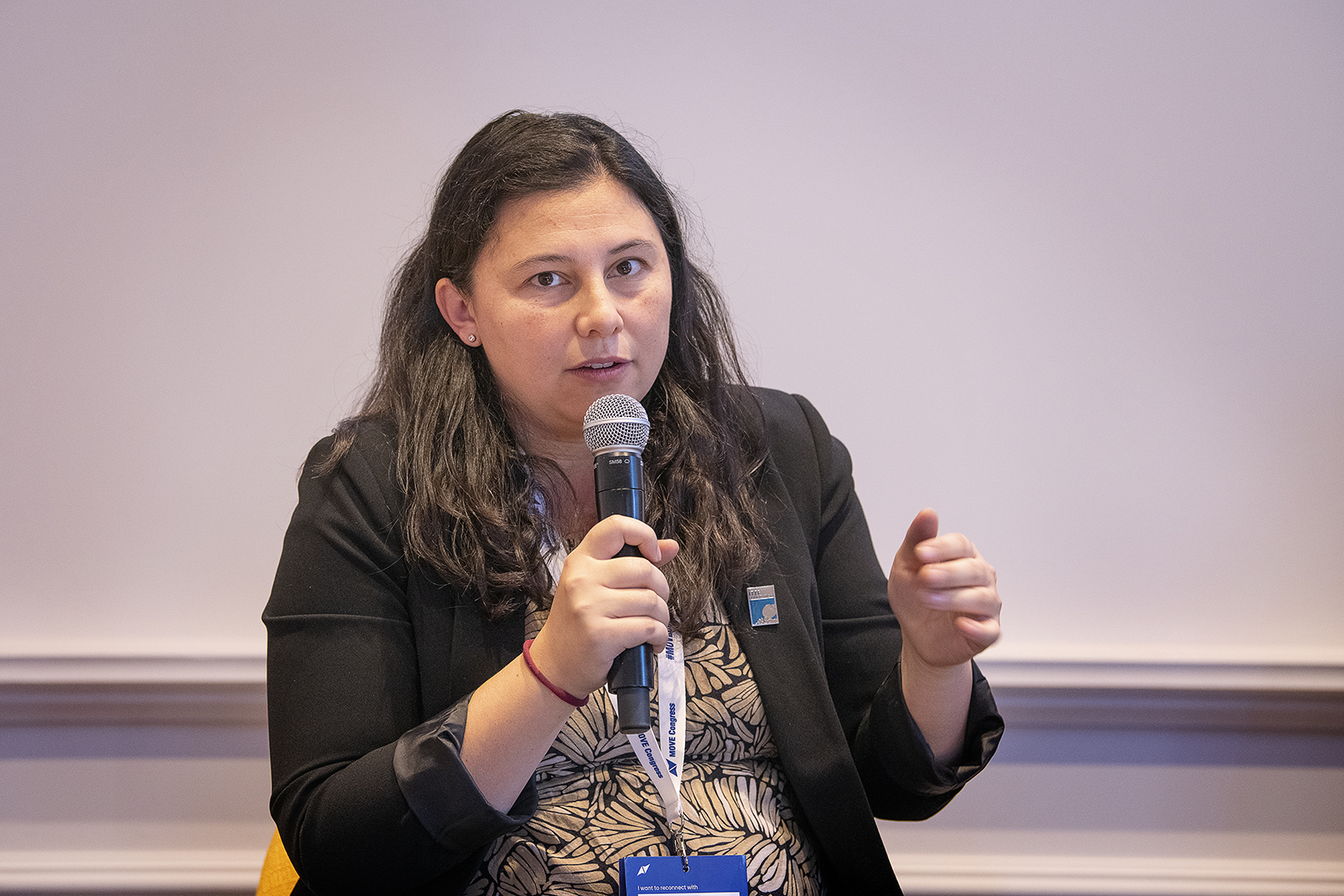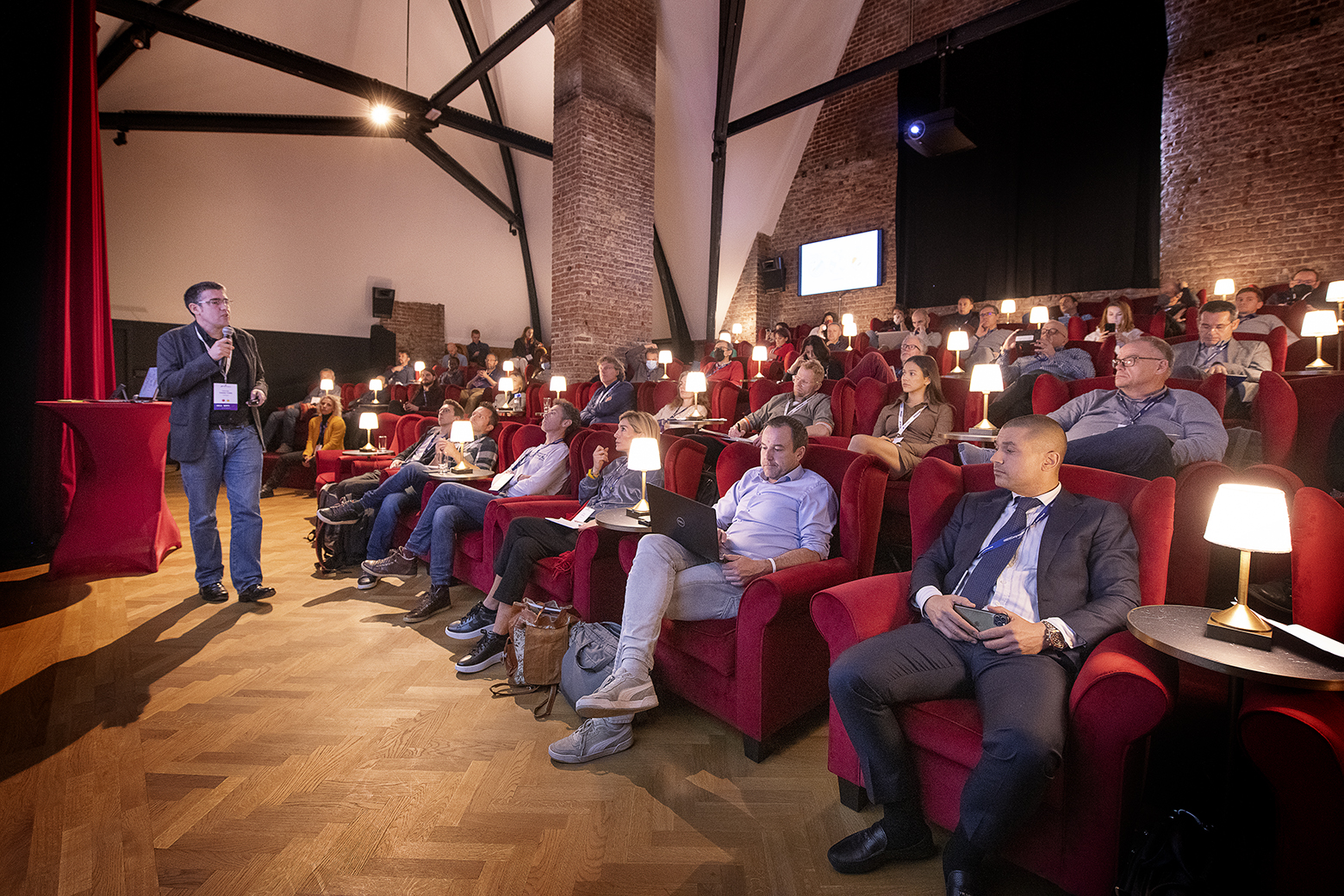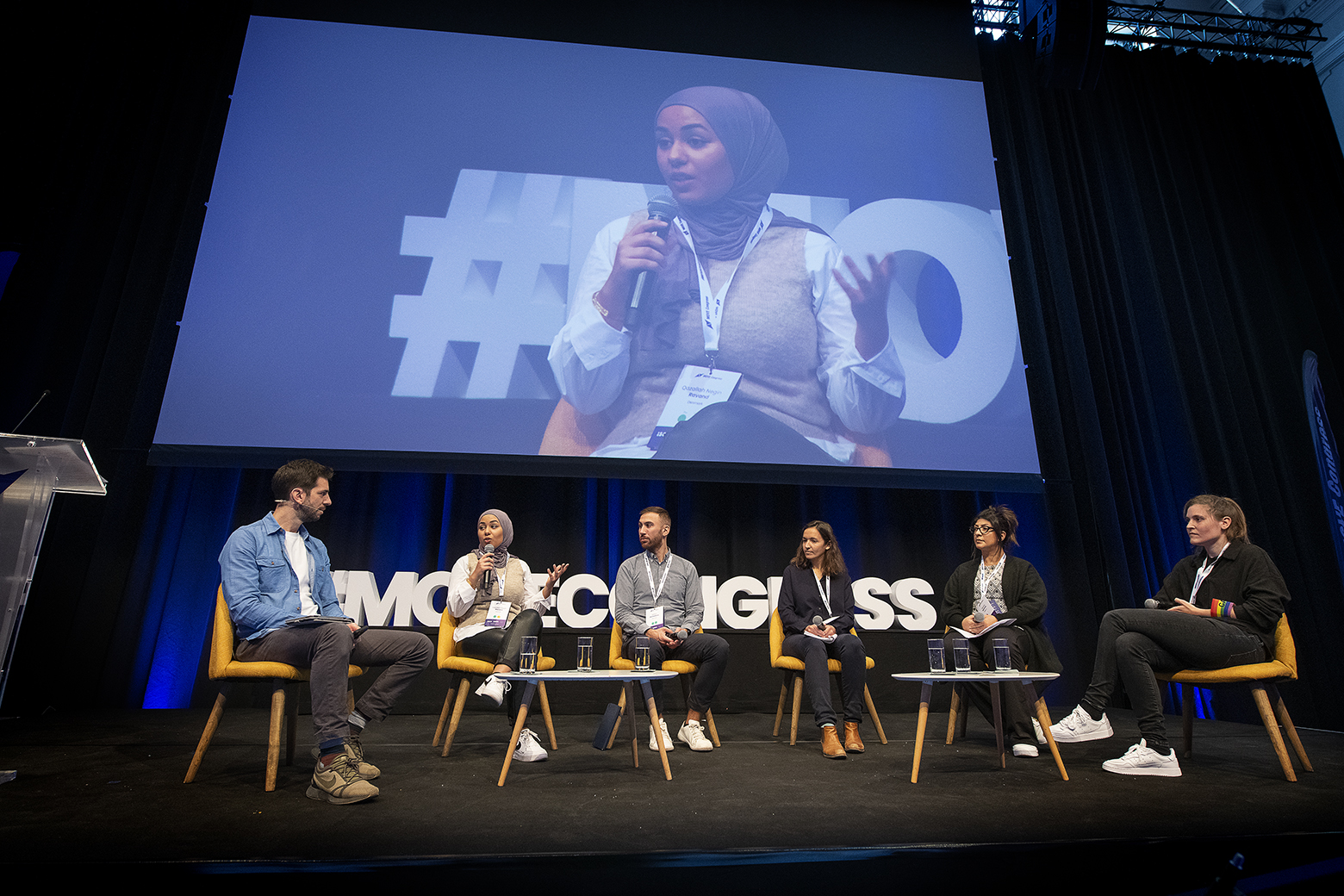By MOVE Congress host Caroline Jessop, Clear Meetings.
A few months ago, eight incredible people made me realise I was wrong. It made me feel deeply uncomfortable, yet it’s changed my perspective and turned into a very valuable piece of learning.
I was running a conference workshop to highlight the experience of refugees, commissioned by ISCA (one of my favourite clients). One by one, eight refugees took to the stage and shared a heartfelt, compelling story with the audience. I remember glancing at my watch, with a growing sense of surprise that these speakers had not only nailed the brief, but kept to time. The breakout conversations that followed were magical. My client was stoked. I realised that I was wrong.
You see, this was not the session that I had designed. It was definitely not an approach that I recommended. Experience has taught me that eight people speaking in quick succession is high risk. Given the chance, most people will talk for too long and go off topic. It is a recipe for chaos. I had planned for the Moderator to present a summary of the stories: feeling it would be easier for the audience to keep track, and save a lot of traffic on and off the stage.
Despite my advice, my client was absolutely adamant that each refugee should speak. Their usual flexibility disappeared, replaced with steadfast clarity: Having each person speak was the only way to meet the objectives of the session. And they were right. The audience was gripped, speakers lit up the room and the conversations that followed were packed with hungry dialogue.
As the session unfurled I came to realise that I had made some pretty lazy assumptions:
- I’d got distracted from the primary session objective – hearing the stories of the refugees. Instead my focus was on being slick and running to time.
- I’d assumed that the refugees were the same as the (usually white) people that conferences often put on stage. People that are regularly invited to offer their expertise, and have become accustomed to doing so at length, even when time is short.
- I’d made no adjustments to my expectations. I’d simply applied ‘business as usual’ thinking to a very extraordinary group.
These are people with incredible stories, who have faced immense challenges to simply stay alive. People hungry to be heard, on behalf of themselves, their families and their communities. Many are the survivors of unmentionable atrocities – of course it’s no problem to stick to the brief of a simple conference workshop!
Sometimes, being wrong is the very best thing to be, even if it comes with discomfort and embarrassment. I learned so much from the stories of the speakers, and also how easy it is to be lazy even under the guise of advocacy. I’d like to thank Monika Rešetar and Khalida Popal for standing firm in your assertion that we should do things differently. You were right. Thank you, you have changed my perspective.
In the words of one of the speakers:
“Whatever you do for me but without me, you do against me”. Mahatma Gandhi
Caroline Jessop has hosted the MOVE Congress twice, in 2019 and 2021 – you can meet her at the MOVE Congress 2023, too! In the meantime, find out more about her work at Clear Meetings, where this blog post was originally published.
How eight refugees proved me wrong
By MOVE Congress host Caroline Jessop, Clear Meetings. A few months ago, eight incredible people made me realise I was wrong. It made me feel deeply uncomfortable, yet it’s changed my perspective and turned into a very valuable piece of learning. I was running a conference workshop to highlight the experience of refugees, commissioned by ISCA (one of my favourite clients). One by one, eight refugees took to the stage and shared a heartfelt, compelling story with the audience. I remember glancing
Why I quit my job to unite the world in motion: Active Evening presenter StreetRacket
The MOVE Congress Active Evening on 18 November invited sport for all and recreational physical activity innovators to get our conference participants moving with an offer to try out their equipment, games – and even circus tricks! One of them was Street Racket, a multi award-winning game that is being showcased around the world as an accessible alternative to tennis. Street Racket creator, founder and director Marcel Straub from Switzerland presented his innovative concept during the Active Evening and also
WHO lead Dr Fiona Bull at MOVE Congress closing: We have to reinvent our system to meet physical activity targets
For the MOVE Congress 2021, we at ISCA prioritised delivering a physical event, because we believe in the power of the physical meeting between people, and we wanted to enable our members and partners to come together to Reconnect, Rebuild and Restart. Some speakers were unable to be there with us in person, so we used our experience in delivering hybrid and online events to bring their expertise to the congress nonetheless. 300 participants, including 60 speakers plus performers, joined
“The ocean is like life – sometimes it’s really unpredictable”: Building mental toughness through sport
Kevin Barton and Viv Holt from Youth Sport Trust international led a peer-to-peer masterclass on the last day of the MOVE Congress titled ‘Rebuilding mental health through physical activity’. “We don’t come here as experts, but as fellow learners with you,” Barton said as he introduced the session. As Dr Fiona Bull from the WHO said in her morning keynote, the past two years have increased awareness of the impact of being restricted and less able to move have affected
“We have to find where the circles are overlapping”: How to make the first MOVE in partnership building
The ‘Mastering partnerships after Covid-19’ MOVE Congress masterclass was held on Friday 19 November and shed light on different aspects of creating and succeeding in partnerships with organisations of different sizes and profiles, with a focus on overcoming the most common collaboration challenges that every organisation can face. The participants gained knowledge on how to master partnerships during and after the pandemic by sharing their experiences among high-profile partner pairs and by taking part in practical “coalition-building” exercises. Helen Vost from
Innovation seems to be everywhere and for everyone – including sport and physical activity promoters
The MOVE Congress masterclasses on Friday morning, 19 November, started with an extremely innovative session (wordplay intended) called 'Mastering the culture of innovation in sport and physical activity'. We heard from some fresh thinkers in the field of recreational sport and physical activity talk about the necessary steps needed for the innovation process to be successful, or, rather, valuable. “The way we are watching, practicing and consuming sports has completely changed. Try to address these changes and remain relevant,” Jean-Baptiste Alliot
“Sport has the power to change the world” and how Sport Diplomacy can make a difference
A two-part workshop and discussion panel featuring experts from two EU-supported projects ‘Towards an EU Sport Diplomacy’ and ‘Promoting a Strategic Approach to EU Sport Diplomacy’ was held at the the MOVE Congress 2021 on Thursday 18 November, exploring broader international perspectives of Sport Diplomacy, and looking closer at the EU Strategy on Sport Diplomacy. Best practices and the role of sports events were discussed with high profile speakers from European institutions and the IOC. Albrecht Sonntag, a specialist in the
Placemaking for physical activity workshop: “It’s not about the buildings, it’s about life between the buildings”
How can we Restart life in our cities in a new way? Expert speakers from Placemaking Europe and Urban Dynamics, and Bennelux placemakers Rozina Spinnoy, Belgium Design Council, Miel Vanhaverbeke, IPitup, and Bart Cardinaal, Hunk Design Rotterdam together with Tour & Taxis COO Peter De Durpel gathered in the MOVE Congress workshop “Rebuild, Reconnect and Restart with Placemaking for the physical activity network” on 18 November to take part in three sessions, providing inspiring yet practical concepts of re-imagining public
“Let’s share the light”: Refugee-led workshop prompts rethink of how to design projects with refugees
Migration expert Adnan Abdul Ghani from Save the Children in Sweden started the MOVE Congress 2021 workshop ‘Reconnect: Collaborate by networking and including refugees’ by sharing his story of starting a movement as an asylum seeker to highlight the skills asylum seekers and refugees can contribute to their new communities. His keynote, followed by a vignette of the refugee’s experience from Girl Power founder Khalida Popal, set the scene for a workshop led entirely by former refugees and migrants who
Nothing about us without us: Why sport needs more diverse decision-makers as it bounces back from the pandemic
The MOVE Congress 2021 plenary session on 18 November featured a discussion panel of experts voicing the points of view of people who are typically – and often systemically – excluded from sport and physical activity. We put inclusion in the “sportlight” and asked why sport has failed to provide safe and inclusive spaces for girls and women, refugees and migrants, people with disabilities and LGBTQI+ participants in the past and how we can take things that we’ve learned during

